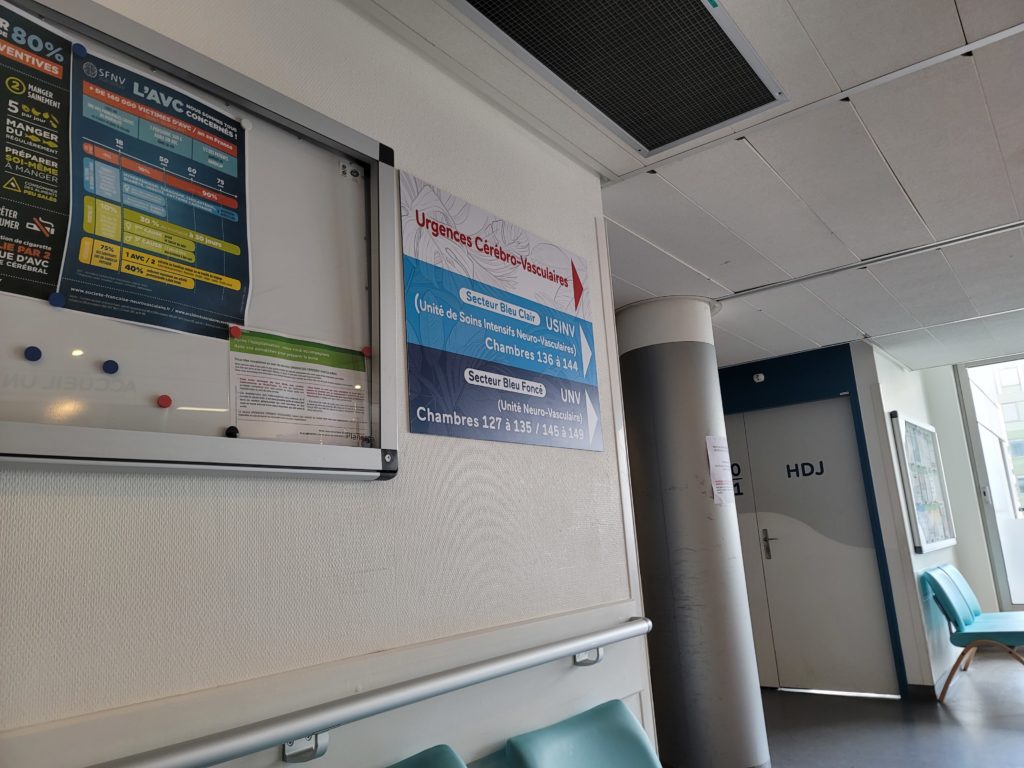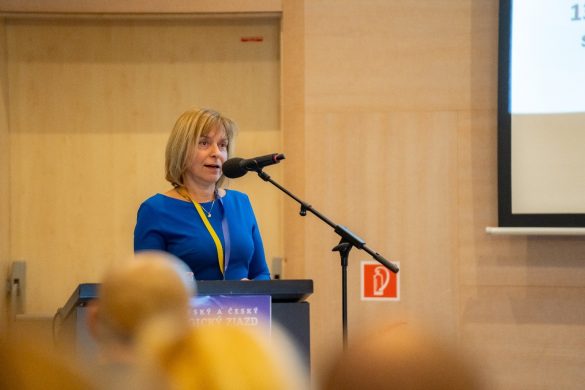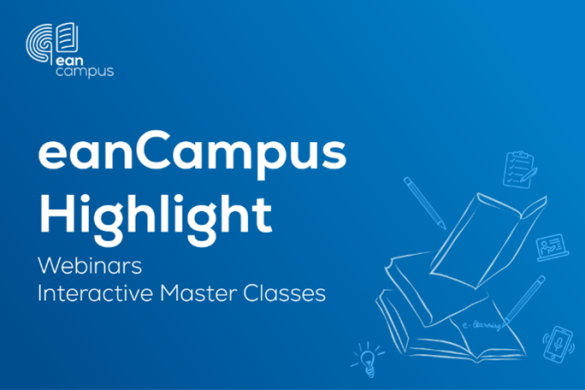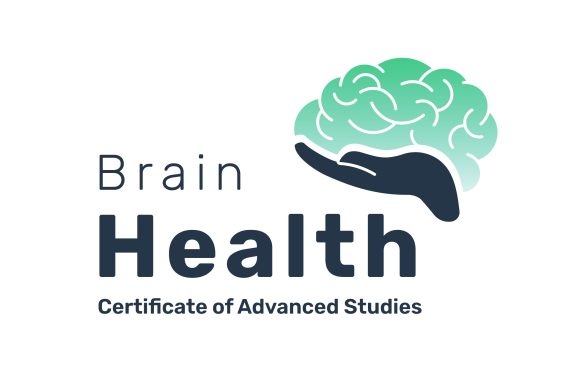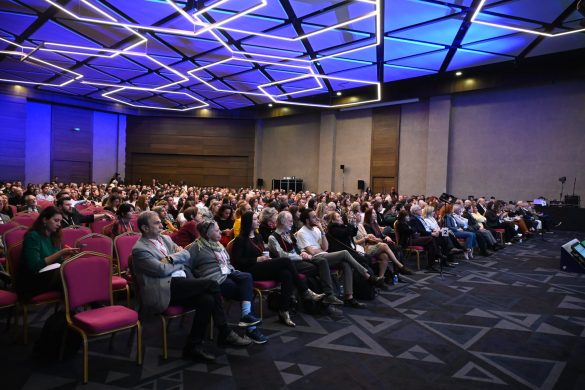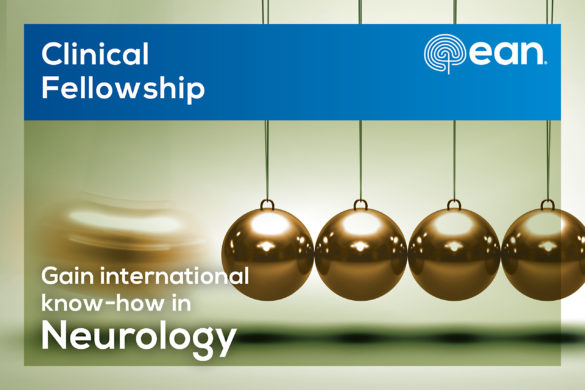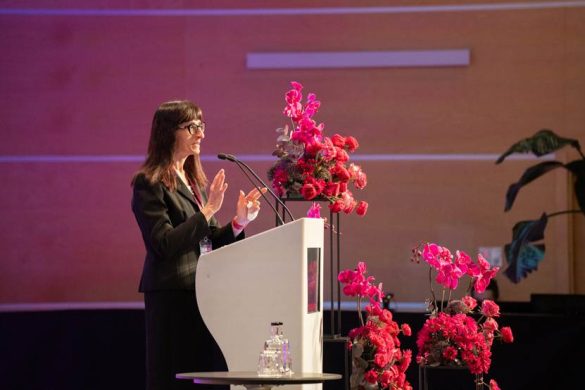Report from a fellowship stay in Chieti-Pescara
by Mahmoud Tarek Hefnawy
visiting the Neurology Clinic of the Università degli Studi “Gabriele d’Annunzio” di Chieti-Pescara, Italy
During my fellowship at the Neurology Clinic of the Università degli Studi “Gabriele d’Annunzio” di Chieti-Pescara in Italy, I had the privilege of working under the mentorship of Prof. Marco Onofrj, the Head of Neurology Clinic, after being selected for the 2023 Student Teaser Fellowship programme by the European Academy of Neurology. I’m thrilled to share my experiences and insights during my fellowship.
Due to visa constraints, my fellowship took place from 1 August to 21 August, slightly shorter than the intended 30 days. However, thanks to the support of the EAN fellowship, I made the most of my time in Italy by attending the university hospital for a continuous 20 days, with daily training sessions exceeding six hours. This condensed schedule allowed me to immerse myself fully in neurology. Each day of my fellowship, I shadowed senior doctors, participated in patient examinations, learned Electroencephalogram (EEG) fundamentals, and observed the diagnosis and treatment of various neurological conditions, including Parkinson’s disease, multiple sclerosis, epilepsy, and stroke.
I observed the distinct gait and tremors characteristic of Parkinson’s disease, providing me with a tangible understanding of this neurological condition. Furthermore, I delved into the intricacies of complete neurological examinations for patients with Multiple Sclerosis (MS), gaining insights into the complexities of diagnosing and managing this multifaceted disorder.
My initiation into the fundamentals of EEG (Electroencephalography) marked a significant milestone, enhancing my comprehension of neurophysiology. Moreover, I encountered a sporadic case of Creutzfeldt-Jakob disease, affording me a unique perspective on this challenging neurological disorder. Exposure to examinations and discussions about delirium broadened my horizons, enabling me to discern the causes and risk factors contributing to this condition. I also had the opportunity to delve into the diagnosis and management of intraspinal cerebrospinal fluid (CSF) infection and witness the clinical presentation of Wernicke encephalopathy.
I understood the recent protocol for Alteplase usage in stroke patients and observed cases with micro-adenomas and high prolactin levels. I learned about the risk factors that can transform ischaemic strokes into haemorrhagic strokes and approach a case of epilepsy for the first time.
My understanding of meningitis and the cardiac risks associated with neurological impairment deepened, and my first day comprehensively approaching a stroke case from the emergency room to clinical examination, NIHSS scoring, and transferring the case to the radiology department and then receiving thrombolytics therapy was a memorable milestone. Discovering the MSA ischaemia identified by the Aspect Ratio added a valuable tool for dealing with stroke cases, and I acquired insights into seizures and their management, especially in children. Continued exposure to stroke cases reinforced my knowledge and skills in managing such critical situations. Understanding the risk factors for dementia, such as alcohol and smoking, and witnessing the unique characteristics of dementia in MRI scans deepened my comprehension of neurodegenerative conditions.
Lastly, I learned about status epilepticus and its management, the interaction of psychotherapy drugs, and gained knowledge about migraines and their treatment, further expanding my clinical expertise. Witnessing a suspected stroke case during surgery left a lasting impression on me, highlighting the significance of teamwork and swift responses in critical situations. These diverse experiences have profoundly shaped my understanding of neurology, equipping me with a wealth of knowledge and experiences that will undoubtedly play a pivotal role in my future endeavors in the field.
This intensive Student Teaser Fellowship satisfied my knowledge and curiosity about neurology as a fundamental branch of medicine. For the first time, I have learned in a clinical overview about EEG, stroke, epilepsy, multiple sclerosis, and movement disorders. I was inspired by seeing how neurologists make a fundamental difference in patient lives when treating stroke, for example. Ultimately, I returned home with complete confidence and satisfaction to choose neurology as my future specialty. I would love to thank the European Academy of Neurology for choosing me for this fellowship, which was like a cornerstone for me in neurology. At the end of my fellowship, my mentor, Prof. Onofri, told me nice words about my hard work, discipline, and interest in neurology, and he provided me with a certificate and a recommendation letter.
Report from 4 weeks in Paris
by Steven Song Kwan Kim
visiting the Cerebrovascular Emergency Service of the Pitié-Salpêtrière Hospital, Paris, France
With the commencement of my medical education in Pavia, Italy, in 2021, I have constantly pondered upon which specialty to pursue after my graduation. Then, in 2023, our school sent out an email to inform everyone about the Student Teaser Fellowship of the European Academy of Neurology (EAN), and without hesitation, I decided to seize this opportunity.
My goal, as a second-year student entering my third year, was to immerse myself in the day-to-day life of the neurology department and experience its overall atmosphere. To achieve this, I reached out to Prof. Charlotte Rosso at the Urgences Cérébro-Vasculaires department, APHP Hôpital Pitié Salpêtrière. This hospital is renowned worldwide for its excellence in the field of neurology, and I was thrilled when Prof. Rosso accepted my request, with me being the first student to contact her regarding the programme this year.
Upon my arrival in Paris, Prof. Rosso met me at the hospital and explained the general structure of the department. I was assigned to follow and learn from the eight ICU patients, most of whom were stroke patients. Each morning, a pair of interns and senior doctors conducted rounds, and I had the privilege of observing and learning from these medical professionals.
From the NIHSS stroke scale to conducting various physical examinations to pinpoint the areas of the brain affected by the stroke, I was fully immersed in the daily routine of these exceptional neurologists. Every morning, doctors, nurses, and therapists gathered to discuss the treatment and progress of each patient. Despite my limited knowledge of French, the interns graciously translated and helped me comprehend critical points discussed during the meetings. They guided me through the interpretation of MRIs and CT scans and assisted me in diagnosing potential outcomes of strokes and embolisms. On one occasion, a senior doctor even challenged me to observe attentively while he conducted a patient checkup, as he intended to inquire about my observations and thoughts on potential diagnoses.
On another day, Professor Rosso took me to her outpatient clinic, allowing me to observe her morning routine and explaining the patients’ medical histories. She also shared her personal journey of becoming a neurologist.
In summary, this experience was precisely what I had hoped for when I applied for the EAN Student Teaser Fellowship. It allowed me to observe the daily routine of neurologists, providing valuable insight into the type of doctor I aspire to become in the future and helping me discover my specialty preferences. Moreover, spending a month in the beautiful city of Paris greatly enhanced my satisfaction with this fellowship.
I would like to express my gratitude to the EAN for providing this incredible opportunity and financial support. I am deeply thankful to Prof. Rosso for granting me this experience, as well as to doctors Jonas, Lourdes, Gaspard, George, Brian, and the other members of the Urgences Cérébro-Vasculaires department at APHP Hôpital Pitié Salpêtrière for their hospitality and the unforgettable experience I had in Paris.
Visit the Student Teaser Fellowship website to find out more about this opportunity for medical students. Interested applicants can get information about eligibility, how to apply with useful tips and FAQ, and how to become a student member including additional benefits when joining the EAN.
The Student Teaser Fellowship is supervised and reviewed by the EAN Education Committee together with members of the Student Task Force.

